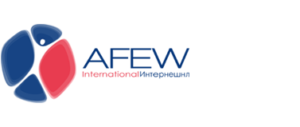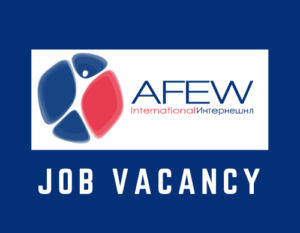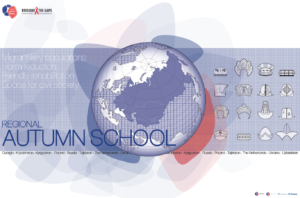 Consultant for the development of a situation assessment tool in the framework of the Cities TB/HIV Regional project, funded by the Global Fund
Consultant for the development of a situation assessment tool in the framework of the Cities TB/HIV Regional project, funded by the Global Fund
It is well known, that the HIV/AIDS epidemic in Eastern Europe and Central-Asia is still driven by most affected key populations, which are concentrated in urban areas. On average, the share of representatives of key population among all PLHA is assumed to be up to 70 percent, while the majority of them are PWID (about 80% of all HIV-infected representatives of key populations). Despite the paramount role of key populations in the development of HIV epidemics in the region, reaching them with key services remains low. The overall coverage of essential HIV prevention services of PWID, sex workers (SW) and men having sex with men (MSM) in Bulgaria, Georgia, Kazakhstan, Moldova, and Ukraine is around 40% (at the level of 50% for PWID and SWs and 16% for MSM).
City level data reveals that from about 18,000 PLHA 5,665 are receiving ART, which corresponds with 20% coverage in Almaty, 22% in Beltsi, 29% in Odesa, 54% in Sofia and 82% in Tbilisi. Given the overall low access to ART, access of key populations is assumed to be even lower, but data is largely unavailable. Out of 5 project cities only Almaty and Odesa could provide disaggregated data on ART access by key population. Similarly, the results of TB and MDR treatment in the 5 project targeted cities are poor, with low treatment success even for new TB cases and relapses, not reaching the targeted 90% (highest in Almaty – 85.4%, lowest in Odessa – 54.2%), while the MDR TB treatment outcome is even worse, from extremely low in Odesa (47.5%) to 69.9% in Almaty.
Three main areas of programmatic/other gaps have been identified as handles for strategy development and interventions in the proposed regional project for selected cities:
- Programmatic and data gaps: reaching key populations, HIV and TB treatment cascade gaps; low treatment efficiency and effectiveness, increase of MR-TB and repeated treatment cases; slow transition to the patient-oriented model of health care delivery and to out-patient ambulatory care; weak integration between HIV and TB services; gaps in essential city level data.
- Political, governance, partnership gaps: lack of political will to address health issues in key populations and promote human rights and access to services by these key groups.
- Financial gaps: sustainability of the HIV/TB responses is a major threat to programs for key populations in EECA.
Aims and objectives of the Cities TB/HIV Regional project
The goal of the project is to develop models of sustainable city responses to HIV and TB in key populations in EECA that significantly contribute to achieving 90-90-90 HIV/TB targets for key populations. The goal is supported by the following four objectives:
- Development and implementation of a model for key populations for the ’90-90-90’ targets of the HIV and TB response in selected cities of the EECA region.
- Establishing effective partnerships between municipalities and NGOs/CSOs in selected EECA cities.
- Ensuring sustainable allocations of municipal funding for key population programs in project cities.
- To increase knowledge management and popularize city responses on HIV and TB in cities of the EECA region and globally.
Project will be implemented in 5 cities in 5 countries: Almaty (Kazakhstan), Beltsi (Moldova), Odesa (Ukraine), Sofia (Bulgaria) and Tbilisi (Georgia).
The project is implemented by the Alliance for Public Health (APH) as lead agency, together with AFEW International and Licit.
One of the planned activities is:
Situation Assessment tool development and training on its use
At the beginning of the project, a needs or situation assessment will be carried out in 5 project cities aiming at identifying particular HIV/TB key populations needs, services, data gaps, barriers to access and sustainability of services resourcing.
Terms of Reference:
Job Location:
- In Europe, Eastern Europe and Central-Asia
Period and duration:
- Starting date 13 March 2017
- A first outline of the tool should be ready by 30 March 2017
- Provide an update of data every 1 week
- The final version of the tool should be ready by mid-April 2017
- A training in how to use the assessment tool in the second part of April 2017
- A workload of 20 working days is expected
Overall Job Objective:
The development of instruments for the assessment with broad consultations with the project partnership and a training provided to implementers on how to use it. Specifically, the assessment addresses improvements in city data systems, availability of population size estimates and their mapping, improvements in city cascade information, HIV, TB, prevention, treatment, health and social integration, human rights of key populations, legal issues, city and country drug policy, accessibility to existing services, existing coordinating bodies and city governance, role and practice of law enforcement, attitudes of media, programs and their resourcing and potential areas for cost optimization.
Description of core responsibilities and tasks:
– collect information and results from assessments done by ECUO’s regional EECA project looking at challenges in transitioning from one stage of cascade to the other
– collect information and results from the situation assessment methodologies on the combinations of services available and the level of funding for interventions within the EHRN regional project
– identify relevant sources for HIV and TB data at national and city level
– consult with the project partners about the relevant topics, the sources and how to do the assessment
– identify software to be used for mapping the data
– write a comprehensive tool to conduct the assessment
– train contact persons on how to use the assessment tool
Requirements
– Epidemiology and/or research background at university level
– Knowledge about HIV and TB in Eastern Europe and Central-Asia
– Familiar with the governmental and non-governmental landscape in EECA
– Speaking and writing in English and Russian
Contacts/Key Relationships:
– Project partners
– AFEW International for reporting and updating
Please, send your application to Anke van Dam’s email: anke_van_dam@afew.nl. The deadline is 15 March.




